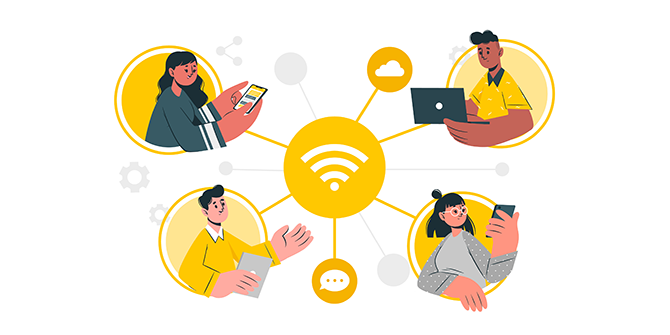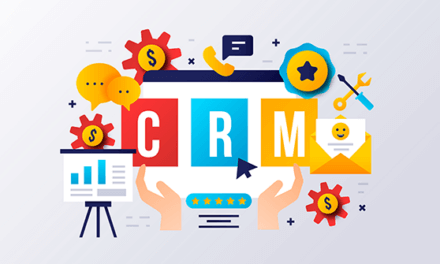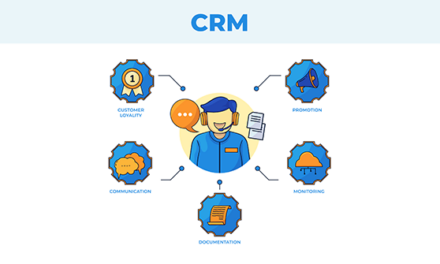Key Takeaways
- Effective communication is essential for the success of any consulting business.
- The 5 best communication channels for consulting businesses are phone, email, chat, text, and social media.
- Each communication channel has its own unique characteristics and advantages, and choosing the right channel for each communication need is important.
- It's important to understand the importance of communication channels and select the best channels for each communication need in order to improve efficiency, productivity, and ultimately boost the success of a consulting business.
In today’s fast-paced business environment, effective communication is crucial for the success of any consulting business.
With the increasing number of communication channels available, choosing the proper communication channels is essential to ensure effective communication with clients.
In this article, we’ll explore the five best communication channels that will boost your consulting business and make your communication more efficient, productive, and engaging.
This article covers from tried-and-true methods like phone and email to modern and innovative tools like chat, text, and social media. It also includes each channel’s benefits and best practices and some common mistakes to avoid.
So, whether you’re a seasoned consultant looking to up your communication game or a new consultant just starting out consulting business, this article will provide you with the insights and strategies you need to succeed.
Get ready to take your communication skills to the next level and boost your consulting business in the process!
What is communication channel?
Communication channels refer to the various ways people can communicate with one another. For example, in a consulting business, communication channels can include phone calls, emails, text messages, social media platforms, and chat applications.
Each communication channel has unique characteristics and advantages, making them more or less effective for specific types of communication.
Importance of communication channels for consulting business

Effective communication is essential for any consulting business to succeed. It’s about getting the message across and building relationships with clients, understanding their needs, and working collaboratively to achieve their goals.
Using the proper communication channels, consultants can improve their communication with clients, colleagues, and stakeholders, ultimately enhancing their business.
In addition, it can also improve the efficiency and productivity of a consulting business.
With the right tools and strategies, consultants can save time, streamline communication processes, and deliver better client results, ultimately enhancing their business. And integrating online order form templates can further streamline client interactions and facilitate efficient order processing.
Top 5 communication channels for consulting business
Following are the top 5 communication channels that help consulting business to boost sales and increase productivity:
Phone

Phone communication is a traditional but effective way of communicating with clients. It is a direct way of building rapport and trust with clients, which is crucial for any consulting business.
Clients often prefer phone communication when discussing complex issues and asking for clarifications.
Benefits of using the phone as a communication channel
- Real-time communication: Phone calls offer immediate and real-time communication with clients, allowing for quick problem resolution and avoiding any delays that might arise in written communication channels.
- Personal touch: Phone calls allow for more personal interaction, building stronger client relationships. This personal touch can create a sense of trust, leading to increased loyalty and repeat business.
- Efficient: Phone calls are often more efficient than email or chat communication when dealing with complex issues. With phone calls, it’s easier to convey tone and emotion, making it easier to understand and address complex issues.
Tips for effective phone communication in the consulting business
- Professionalism in tone and language: Ensure that you speak professionally and use clear and concise language. Speak clearly and slowly, and avoid using slang or jargon.
- Active listening: Be attentive to your clients during phone conversations. It shows that you are interested in their concerns and are committed to helping them.
- Scheduling calls: Schedule calls in advance and ensure you are available at the agreed time. It demonstrates your commitment to your clients and respect for their time.
- Following up on calls: Follow up with clients after phone conversations to ensure they understand the information and answer any additional questions.
Common mistakes to avoid when using phone as a communication channel
- Not being prepared: Before making a phone call, you must prepare notes and ensure you have all the necessary information. Failing to do so can lead to confusion and miscommunication, which can negatively impact your consulting business.
- Not actively listening: Active listening is an essential skill for effective communication. Failing to listen attentively to the client can lead to misunderstandings and can make the client feel unimportant or unheard.
- Not being clear: Clear communication is key to effective phone communication. Failing to communicate clearly can lead to confusion and frustration on both sides. Speaking, using simple language, and ensuring the client understands your message before the call ends are essential.

Email is a quick and effective way of communicating with clients and team members. It is a valuable tool for sending documents and sharing vital information. Email communication is also a way of keeping records of meaningful conversations.
Advantages of using email in the consulting business
- Convenient: Email is a convenient communication channel as it allows consultants and clients to communicate with each other regardless of their location and time zone. It eliminates the need for face-to-face meetings, which can be time-consuming and costly.
- Documentation: Email provides a paper trail that can be used for documentation purposes, such as recording agreements and commitments made during communication. Having a written record of communication can help consultants and clients avoid disputes that may arise from misunderstandings.
- Time management: Email allows for communication anytime, allowing consultants and clients to manage their time more effectively. They can respond to emails at their convenience without worrying about scheduling conflicts or time constraints arising from other communication channels.
Guidelines for crafting effective consulting emails
- Writing compelling subject lines: Use subject lines that are clear and concise and indicate the purpose of the email. It helps the recipient to prioritize their responses.
- Clear and concise messages: Keep messages brief and to the point. Use bullet points and headings to break up the text and make it easier to read.
- Use of appropriate tone and language: Use a professional tone and language that is appropriate for the audience. Avoid using emoticons or abbreviations.
- Proper formatting and grammar: Ensure that emails are correctly formatted and are free of spelling and grammatical errors. It gives a good impression to clients and demonstrates attention to detail. To quickly find & fix grammar and spelling errors, you can utilize an online grammar checker.
Common mistakes to avoid when using email as a communication channel
- Being too informal: Being too informal in emails can lead to misinterpretation. In a professional setting, it’s essential to maintain a level of formality in your emails. Avoid using slang or abbreviations that may be unfamiliar to the client, and ensure your tone remains professional.
- Failing to proofread: Failing to proofread your emails can lead to typos and misunderstandings. A poorly written email with typos or grammatical errors can create a negative impression of your consulting business. Take the time to proofread your emails before sending them to ensure they are error-free.
- Not responding promptly: Not responding to timely emails can lead to frustration and dissatisfaction. Clients expect prompt responses to their emails, and failing to do so can cause them to lose confidence in your consulting business.
Chat

Chat communication is growing in popularity in the consulting industry because it offers a rapid and effective way to communicate with clients and team members. Additionally, it is a method of giving immediate support and aid.
Benefits of using chat as a communication channel
- Quick communication: Chat is a great communication channel for quick and easy communication. Unlike email, where there might be a delay in response time, chat allows for immediate feedback.
- Real-time communication: Chat also allows for real-time communication, like phone communication. It can be especially useful for addressing complex issues or situations where back-and-forth communication is required to resolve a problem.
- Cost-effective: Chat is often a more cost-effective communication channel than phone or email. It is included in many communication platforms, making it an affordable option for businesses of all sizes.
Best practices for effective chat communication in consulting business
- Use of chatbots for quick and efficient communication: Use chatbots to provide automated responses to frequently asked questions. This saves time and allows consultants to focus on more complex issues.
- Timely response to messages: Respond to messages promptly and avoid leaving clients waiting for too long. This shows that you value their time and are committed to providing excellent service.
- Clear and concise messages: Keep messages brief and to the point. Use precise language and avoid jargon or technical terms that clients may not understand.
- Use of appropriate tone and language: Use a professional tone and language that is appropriate for the audience. Avoid using emoticons or abbreviations.
Common mistakes to avoid when using chat as a communication channel
- Not using appropriate language: Using inappropriate language in chat messages, such as slang or profanity, can make the consultant seem unprofessional and damage their reputation. It is important to maintain a professional tone when communicating with clients.
- Not being clear: Chat messages can be easily misunderstood if they are not clear and concise. Consultants should ensure that their messages are easily understood and have conveyed the intended message to the client.
- Overusing emojis and slang: While using emojis and slang can be appropriate in some contexts, overusing them in professional chat messages can make the consultant appear unprofessional and damage the relationship with clients. It is important to use them sparingly and only in appropriate contexts.
Text

Text communication is a quick and efficient way of communicating with clients. Therefore, it is beneficial when clients need to be contacted urgently, such as in the case of a project emergency or a scheduling conflict.
Advantages of using text messaging in consulting business
- Quick communication: Text messaging enables consultants to communicate with their clients quickly and easily, as messages are typically read and responded to promptly.
- Mobile accessibility: Clients can receive and respond to text messages on their mobile devices, making it a convenient communication channel that can be accessed from almost anywhere.
- Less intrusive: Text messaging is less intrusive than phone calls, which allows clients to respond at their convenience. They can read the message when they have a moment without interrupting their work or personal lives.
Tips for effective text communication in the consulting business
- Use proper grammar and spelling: Using correct grammar and spelling in text messages helps to maintain a professional image and avoids any confusion or misunderstandings.
- Confirm receipt: It is important to confirm that the client has received the message and ask for confirmation of their response to avoid misunderstandings. This will help ensure that communication is effective and efficient.
- Limiting the use of text communication: Avoid relying solely on text communication for complex or sensitive issues. Instead, use it for quick updates and simple requests.
Common mistakes to avoid when using text as a communication channel
- Not using appropriate language: It is important to use professional language when communicating through text messages as using inappropriate language can harm the consultant’s professional image.
- Not being clear: Communication through text messages can sometimes be vague or unclear, which can lead to misunderstandings. It is important to keep messages concise and to the point while ensuring that the message is clear and easy to understand.
- Texting outside of business hours: Texting clients outside of business hours can be considered intrusive and unprofessional. It is important to respect clients’ privacy and only text during business hours unless it is an emergency that requires immediate attention.
Social media

Social networking is a powerful tool for connecting with potential customers and establishing a credible online presence. It is a method for exchanging knowledge and establishing connections with customers and colleagues in the industry.
Benefits of using social media for consulting business communication
- Wide reach: Social media platforms like LinkedIn, Twitter, and Facebook have millions of users, which means that consultants can communicate with a wider audience than they would through traditional communication channels like phone or email. This wide reach can help consultants attract more clients and grow their business.
- Informal communication: Social media platforms allow for informal communication, which can help build relationships with clients. It provides an opportunity for consultants to share their personal and professional experiences, opinions, and insights, which can help clients get to know them on a more personal level.
- Cost-effective: Social media platforms are free to use. Moreover, it is often more cost effective than traditional advertising channels, allowing consultants to promote their services to a broader audience without breaking the bank.
Tips for effective communication on social media
- Creating a strong social media presence: Create social media accounts on platforms your clients will likely use. It allows you to reach potential clients and build a strong online presence.
- Consistent and relevant content: Share content that is relevant to your clients and industry. It demonstrates your expertise and keeps clients engaged.
- Engaging with clients and followers: Respond to comments and messages from clients and followers promptly. It builds relationships and shows that you value their input. For example, Facebook provides insightful analytics that can help you improve your understanding of the people you target.
- Maintaining professionalism: Maintain a professional tone and language on social media. Avoid controversial topics and remain neutral on political or social issues.
Common mistakes to avoid when using social media as a communication channel
- Being too informal: While social media allows for more informal communication, consultants must maintain a professional image. Using inappropriate language or tone, or sharing personal information, can damage the consultant’s credibility and professionalism.
- Posting inappropriate content: Sharing offensive, controversial, or irrelevant content to the consultant’s area of expertise can also damage their professional image. It’s important to consider the potential impact of each post on the consultant’s reputation and their audience’s perception of their expertise.
- Ignoring negative feedback: Negative feedback on social media can be challenging, but ignoring it can be even more damaging. Consultants should respond to negative feedback professionally and empathetically, addressing the issue and offering solutions or apologies where necessary.
Conclusion
In conclusion, effective communication is crucial for the success of any consulting business. With the advent of various communication channels, consultants have many options to choose from to communicate with their clients.
By selecting the appropriate communication channels and following the best practices outlined in this article, consultants can improve their communication with clients and ultimately boost their business.
It’s important to remember that each communication channel has its advantages, disadvantages, and best practices. By understanding these nuances, consultants can make the most of each channel and tailor their communication to their clients’ needs.




